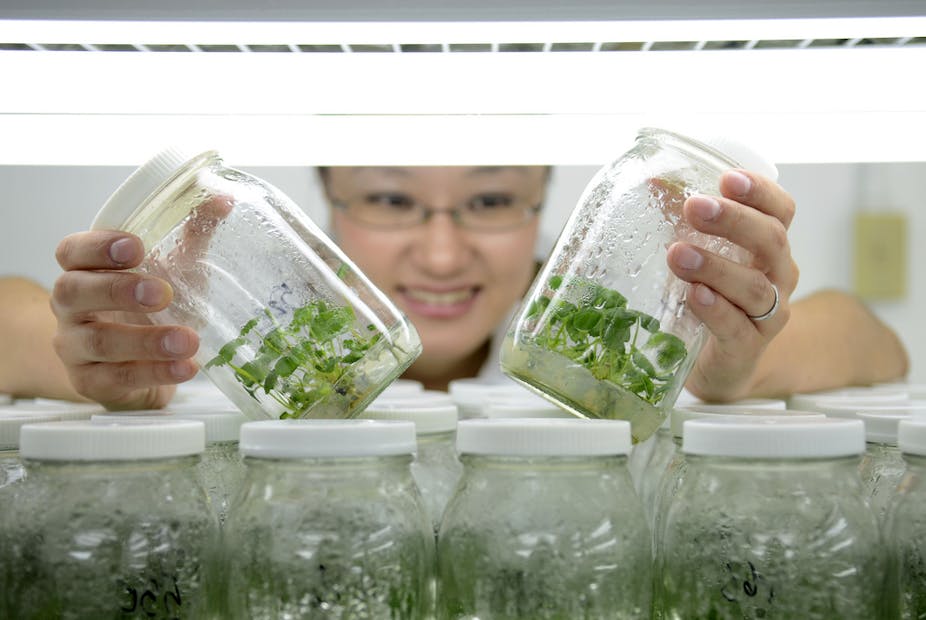Scientists are biased towards recruiting and encouraging men over women into the profession, according to an article published last week in the journal PNAS.
In the study, 127 science academics across disciplines, genders and ranks were asked to rate an applicant for a lab manager position. The academics ranked the “candidates” according to perceived competence, whether they could be mentored and their expected starting salary.
What these academics didn’t know was that they were all given identical CVs, only with male and female names switched round.
The authors of the study – led by Corinne A Moss-Racusin from Yale University – found CVs with male names were clearly favoured over those with female names and males were offered a bigger starting salary.
Interestingly, Moss-Racusin and colleagues found the gender of the academic assessing the application didn’t affect the bias: men and women were more likely to preference male applicants.
I’m not about to debate the validity of this paper – the extent of my psychology knowledge comes from flicking through “50 things you need to know about psychology” in the airport yesterday. I’m going to accept the findings, as that is what peer review is for in the first place.
But, as a woman who happens to work in a scientific profession, I’m very interested in the implications of this work. What should be done to address this issue?

Well, we could do nothing. The authors suggest the male bias is “unintentional” and is “generated from widespread cultural stereotypes rather than a conscious intention to harm women”. If that is the case then surely society is at fault.
There’s a test for this: do similar professionals do that same thing – a lawyer recruiting for an intern, say? If so – and it seems there is a gender bias within the legal profession – it would seem a little harsh to pick on scientists in particular.
But perhaps a societal pro-male bias is exacerbated by the steepness of the career pyramid in academia?
(That is, there are many thousands of undergraduates becoming hundreds of postgraduates, leading to only a handful of professors. The climb to the upper region of academia is long and steep.)
If so, is there then a case for the dreaded positive discrimination? (Yes, that can of worms).
I’m pretty squeamish about the idea of positive discrimination. Nobody, whatever box you tick, wants to know they’ve reached a position because of some attempt to even the ledger. We all just want to be judged on our merits.
But then there is always the argument that bringing diversity into the workplace enriches the place as a whole and sometimes the only way of achieving this is through a more “focused” appointment procedure.
As always on these issues, I will defer to physicist Athene Donald who is much more knowledgeable and eloquent than I. To quote:
When you are selecting a single individual who is meant to be unequivocally “the best” to appoint someone only because they are a woman who is vaguely qualified is dangerous and unhelpful to the individual and the organisation.

So what is the impact of this bias on those of us in the science merry-go-round, aiming to grab the first rung of the academic ladder, where time may be ticking down to the end of a current contract?
Where previously we may have worried about unconscious bias in interviews – such as an offhand “so what does your husband/partner think of you applying for this position?” – now it seems there could even be something to worry about at the CV stage.
The study specifically focused on positions before a PhD and so it would be wrong to assume the findings can be transposed further up the academic ladder. The implication of the paper was that this slight, societal effect could be having an undue influence on the number of women in science before doctoral level.
I would anticipate that any societal bias would actually lessen as you move up the academic scale. The further you get up the scale the more unique you become, so surely a subtle gender bias would not have as much of an effect?
Whatever the effect higher up the academic tree, we cannot afford to hide from the findings of this paper. Gender bias is real in science and probably a contributing factor to there being less women in the sector.
So what are we – scientists and the general public – going to do about it?

